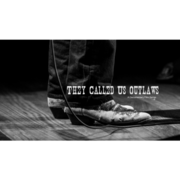New York, NY (Top40 Charts) Last month, Luaka Bop announced The Muslim Highlife of Alhaji Waziri Oshomah, the third volume of their widely celebrated World Spirituality Classics series, out
September 23rd. Originally initiated to offer some form of positivity, The Muslim Highlife of Alhaji Waziri Oshomah follows the acclaimed World Spiritualty Classics releases of Alice Coltrane Turiyasangitanada's ecstatic music and private press gospel soul compilation The Time For Peace Is Now, both of which were awarded Best New Reissue by Pitchfork. The atmosphere of The Muslim Highlife of Alhaji Waziri Oshomah is one of enjoyment, excitement and pleasure, because to see Waziri perform, is to be addressed, body and soul. Today, they present its next single/video, "Ovini Omoekeke Alhaji Inu Umoru," (which, believe it or not, isn't even the longest song title on the album), and which follows the lead track "
Jealousy" and "Forgive Them Oh God Amin - Amin," both of which have received support from Gilles Peterson and Don Letts of 6 Music. There's a lightness to the danceable track "Ovini Omoekeke Alhaji Inu Umoru," as Alhaji Waziri Oshomah sings over flitting keys and fluttering brass.
A devout Muslim and a pillar in his local community, Alhaji Waziri Oshomah wrote this song as a dedication to an important member of his village (Alhaji Inu Umoru, as the title would suggest). With a rolling hook on his keyboard, Waziri strikes his signature balance of Etsako/Afemai folk styles with pan-Nigeran highlife and pop to create a unique form of dance music. It's a sublime vehicle for his Islamic philosophy, conveying his spiritual ethos in a way that everybody, no matter their belief or religion, can understand. Here, Waziri says, "People who are truthful and honest in life are better than those who embezzle wealth for themselves. No animal in the jungle can ever overrun the strength of an elephant."
Born into a Muslim Afenmai/Etsako family in southern Nigeria, Waziri was entranced not only by the highlife sound emanating from Lagos, but by Etsako groups, who favored driving guitar lines over the flamboyant horn sections of the capital. When his parents disowned him for fear he had strayed too far from his faith, Waziri responded by infusing his music with the teachings of Islam. In 1970, against a backdrop of the Nigerian Civil War, Waziri cut loose and started his own band, pouring Western-influenced instrumentation, electronic flourishes, and soul phrasing into the deep well of the region's indigenous folk styles. Without transport, the band would regularly walk miles to gigs carrying what equipment they had on their heads.
First recorded between the mid-'70s and mid-'80s, The Muslim Highlife of Alhaji Waziri Oshomah spans the years when Waziri first completed the hajj. Despite drawing comparisons with the electronic sounds of
William Onyeabor, the visceral afrobeat of Fela Kuti, and Ebo Taylor's Ghanian guitar-led highlife, Waziri's is a world unto itself. It is a world where musical expression and Islamic culture moves hand-in-hand. Soul music in the truest sense of the word.























